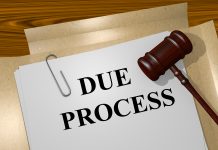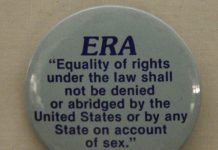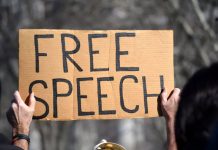The end is nigh for the Liberal Conservative’s look at the Bill of Rights. Welcome…to Part 9!
If you’re just joining us and would like to play catch up, then click here to check out Parts 1-8, as well as all things Liberal Conservative. Of course, all L.C. pieces come to you courtesy of Liberal America. And now, on with the show!
The enumeration in the Constitution, of certain rights, shall not be construed to deny or disparage others retained by the people.
The 9th Amendment in all of its glory. This piece of legislation is an interesting one. Not only has it not been used to limit the rights of the people it, too, hasn’t been used to limit the powers of government. This is mostly because the Ninth Amendment does not offer any additional rights of any kind. Instead, it is meant as a rule by which one should read and interpret the Constitution.
You see, back in the early days of the grand old U.S. the people were fearful that any rights not explicitly granted to them by the first eight amendments meant that the government was thus withholding them. It was men like James Madison – the fourth President of the United States who is often referred to as the “Father Of The Constitution” – and Alexander Hamilton – who was Chief of Staff to George Washington as well as the leader of the Federalist Party – who, despite later becoming rivals in the Federalist vs. Democratic-Republican battles, had championed the cause of the Ninth Amendment.
Said James Madison to Thomas Jefferson:
I conceive that in a certain degree … the rights in question are reserved by the manner in which the federal powers are granted…
It is widely believed that Madison was referring to Article I, Section 8 of the Constitution which spells out the various powers the U.S. Government keeps; powers such as collecting taxes, providing national defense, regulating international commerce and trade with native tribes, to coin and regulate the value of money, etc. It was Madison’s belief – given the wording of Article I, Section 8 – that rights not specifically enumerated in the first eight amendments were retained by the people and that the U.S. Government had little power of restriction in this regard. For those who stand in support of NSA spying, the Patriot Act and/or the National Defense Authorization Act, this means that the people do, in fact, own the right to privacy even if you ignore the “unreasonable search and seizure” provisions of the Fourth Amendment.
There are politicians who have often attempted to argue that the right to privacy does not exist. Thankfully, men and women like that tend to turn out to be a little more unhinged than they’d like to admit. Still, at the very least we can put a face to this blatant anti-Constitutional stance so that we know who to fight.

So, How Does This Amendment Apply To Modern America?
Well…as I may have mentioned once or twice or perhaps even thrice before, there are those who have done great damage to even the enumerated rights within the Bill of Rights. This leaves the rights not enumerated in the Constitution – such as privacy – really rather vulnerable given that their opponents can cry “but they’re not in the Bill of Rights!”

What people may not realize about the Ninth Amendment is that it can be used in support of things like the pro-choice movement and marriage equality/gay rights. Keep the Government out of the doctor’s office and out of the bedroom, because the Ninth Amendment says it has no right. It’s the truth.
But, in conclusion, much like the First, Fourth, Fifth, and Sixth Amendments, we are fighting a heck of a war over the Ninth Amendment. Thankfully, however, we the people are at least winning some of the battles.
Edited/Published by: SB





